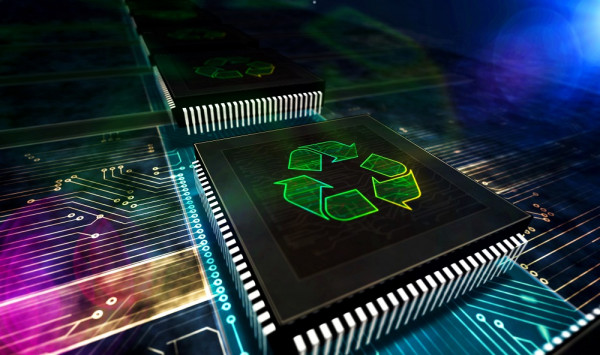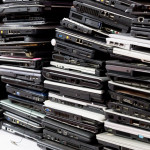
According to a study from the Biden administration, the federal government should encourage design for recyclability in consumer electronics and support technologies that recover rare earth magnets from hard drives.
Building Resilient Supply Chains: The Report
“Building Resilient Supply Chains, Revitalizing American Manufacturing, And Fostering Broad-based Growth” was issued by the White House earlier this month. It contains contributions from the departments of commerce, energy, military, and others, and it examines the condition of major industrial sectors and feedstocks.
The research took into account recycling, as well as enhancing metal recovery from various gadgets. The research urged for more government assistance for the domestic recycling industry in general. It advocated for US EPA initiatives to assist state and local governments in increasing collection of goods containing elements of interest, using electric car batteries as an example. Consumer electronics, however, had a role in the suggestions.
“There are multiple other areas in which the federal government should support recycling opportunities,” the study concluded, indicating that the federal government, for example, could push important industrial sectors (such as consumer electronics) to establish industry standards for creating goods that are more easily recyclable. The development of technologies that separate and enhance concentrations of strategic and important elements in [end-of-life] waste streams should be a second area of support.
Rare-Earth Materials
The research underlined the significance of recycling in supplying the country with rare earth elements, which is a source of worry given the United States’ reliance on China for the critical metals. Rare earth magnets, which are mostly found in hard drives, can be found in the e-scrap stream.
A recent Department of Defense award to a Texas rare earth recycler, as well as Department of Energy study into rare earth recovery, were mentioned as instances of government agencies’ rising interest.
The study also suggested that the US government take steps to recover these minerals inside its operations. The government maintains over 4,000 data centers, according to the report, which presents a “a near-term opportunity to leverage federally-funded R&D to recycle rare earth permanent magnets from hard disk drives”
Aside from rare earths, the study highlighted the increase of lithium-ion battery recycling in the United States, as well as government backing for the sector’s development. According to the paper, interest in recycling lithium ion batteries is growing quickly, fueled by Department of Energy research money and the prospect of greater supply as the first generation of hybrid-electric and full-electric cars become available for recycling.
Meanwhile, as the availability of electric car batteries for recycling increases, e-scrap batteries may be able to contribute to the developing electric vehicle industry, according to the research.
“As the global EV fleet grows and battery cobalt content declines, used EV batteries and consumer electronic batteries may become an increasingly significant source of future cobalt supply to the battery supply chain,” according to the research. Electric car batteries will eventually dominate that supply stream, according to the research.
In addition, the study stressed the necessity of expanding domestic outlets for recycled materials, saying that gadgets will continue to be exported if local markets are insufficient. According to the study, this indicates a reduction in prospective material supply.
According to the report, the practice of exporting reconditioned U.S. items is prevalent in consumer electronics. Used mobile phones, for example, are frequently exported for re-use in poor countries, which may lack adequate recycling infrastructure or legislation, resulting in detrimental long-term consequences on material availability.
Related News: Now In the Works – A Global E-Scrap Standard | Circular Economics Presents a $57 Billion Dollar Ewaste Opportunity | Recycling Nanowires in Electronics is Now A Possibility
TechWaste Recycling directly services all of Southern California and provides pickup services to its facilities from nationwide locations. Visit TechWaste Recycling’s website at www.techwasterecycling.com to schedule a pickup that works for your convenience and schedule.



































